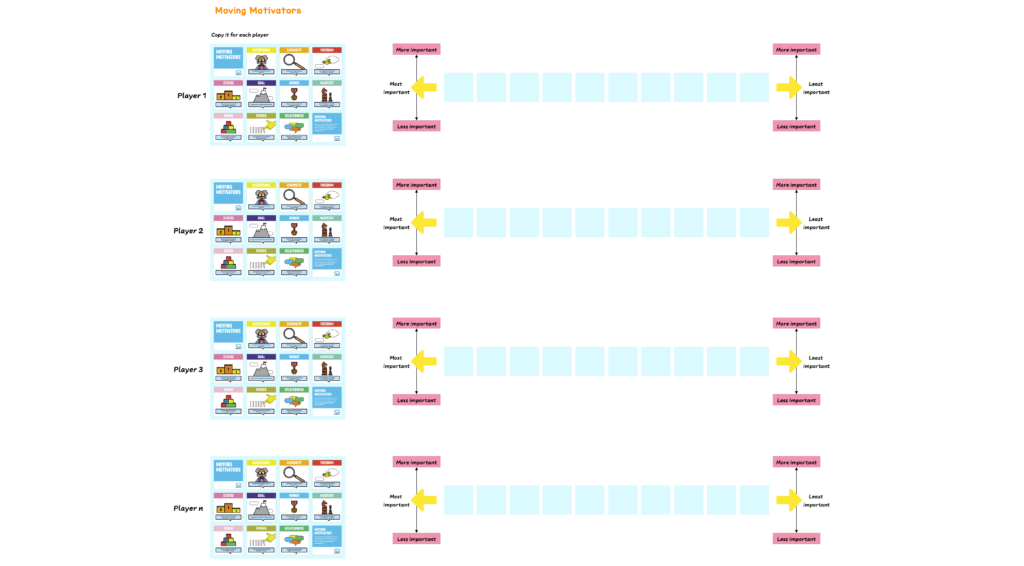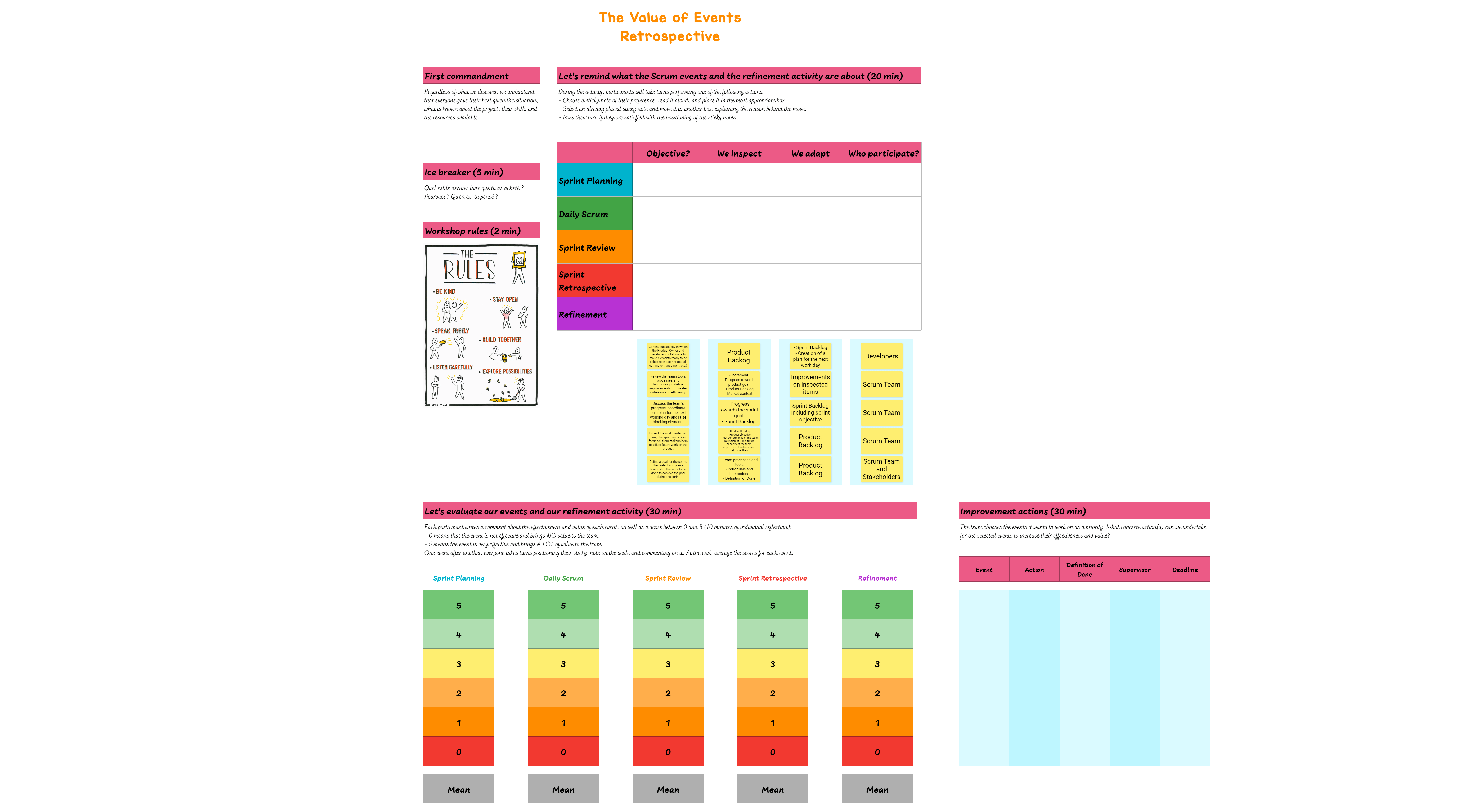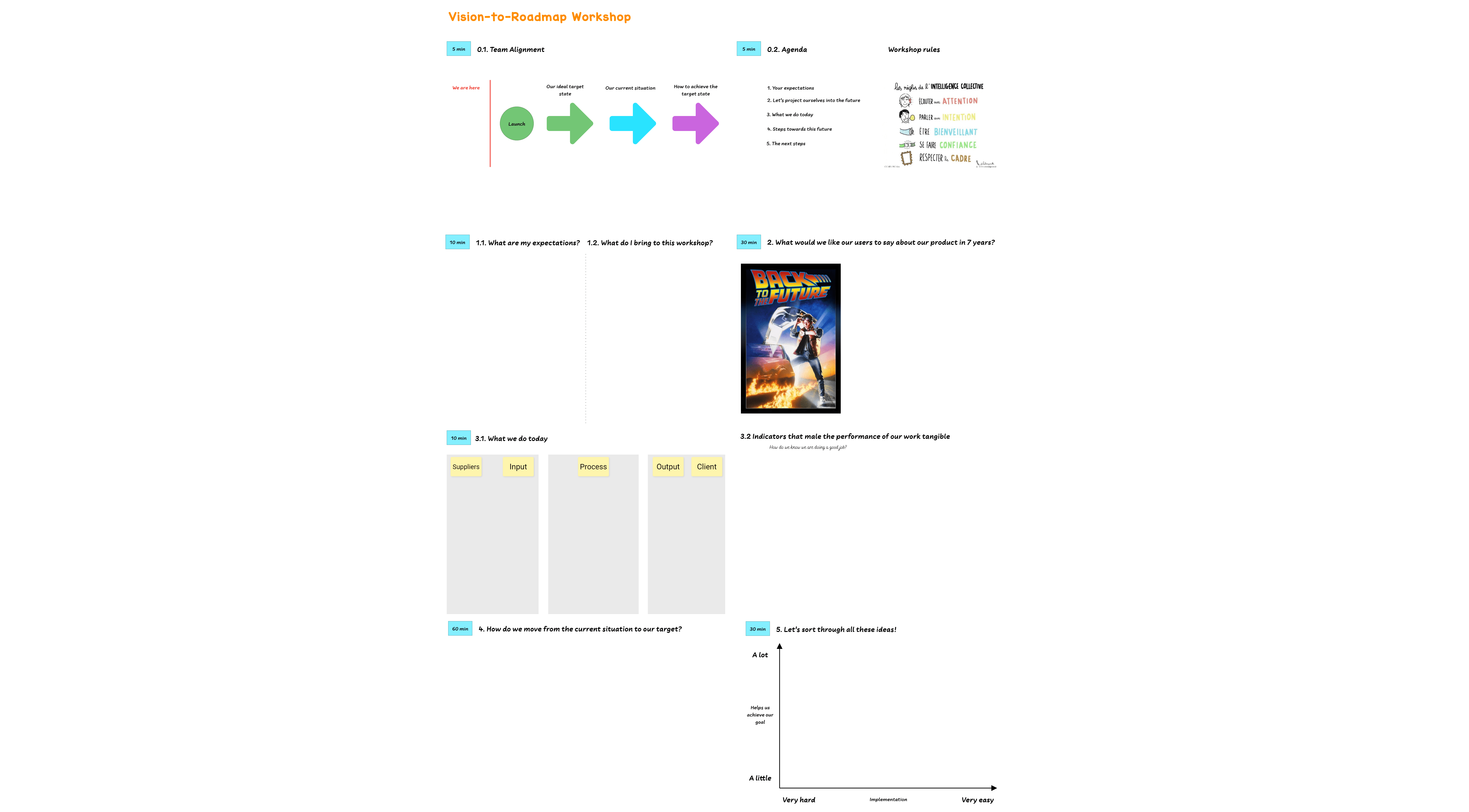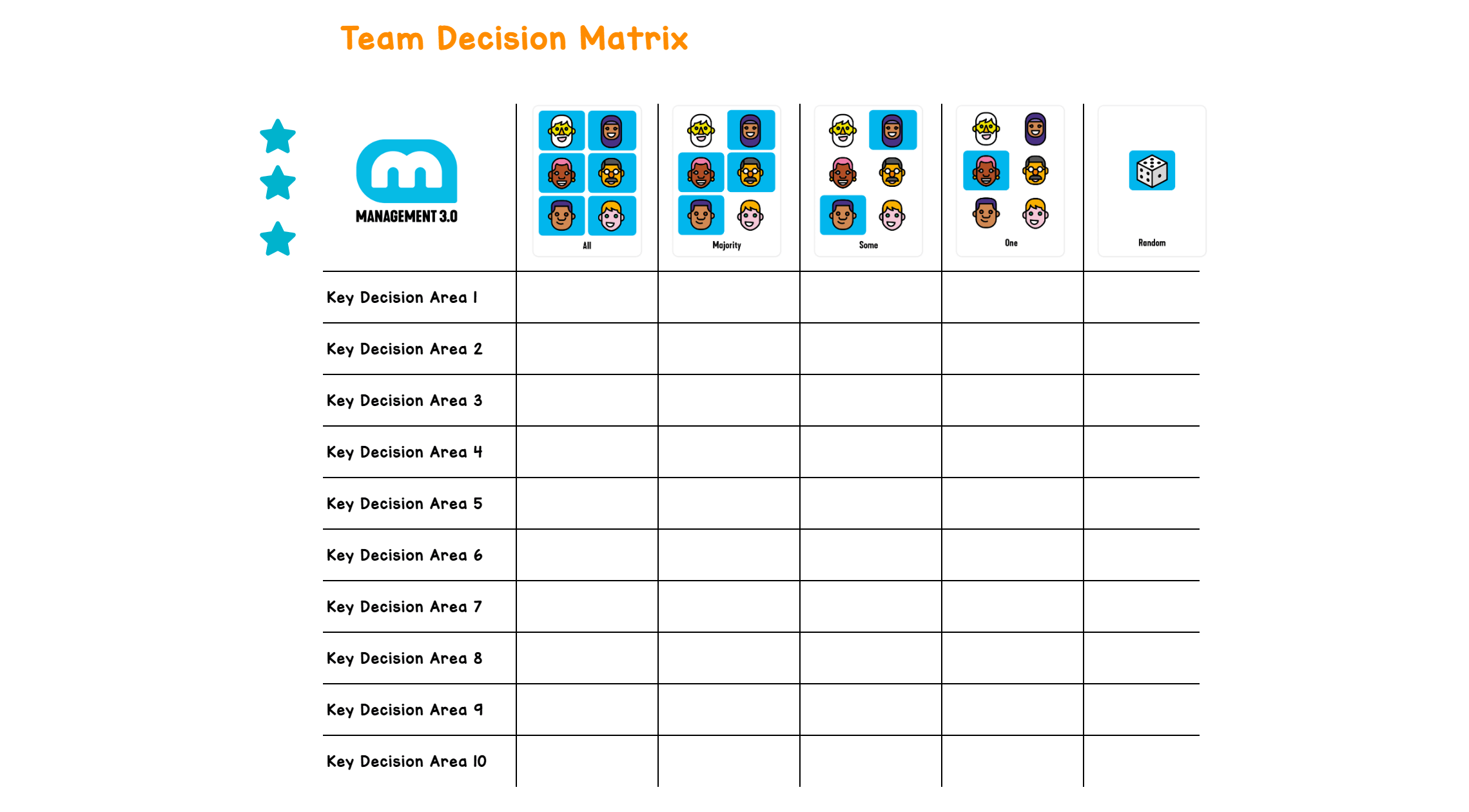Description of the workshop
The Moving Motivators workshop is designed to assist team members in expressing and prioritizing what motivates them in their daily work. It is an excellent exercise to get to know your colleagues on a more intimate level and to gain a better understanding of the factors that shape their behavior and decision-making.
The workshop provides an opportunity to create a more positive and productive work environment by identifying and addressing the needs and preferences of each team member.
Designed by Jurgen Appelo, creator of Management 3.0, the workshop consists of 10 cards, each featuring an intrinsic motivation factor:
- Acceptance: The people around me approve of what I do and who I am.
- Curiosity: I have plenty of things to investigate and to think about.
- Freedom: I am independent of others with my own work and responsibilities.
- Status: My position is good, and recognized by the people who work with me.
- Goal: My purpose in life is reflected in the work that I do.
- Honor: I feel proud that my personal values are reflected in how I work.
- Mastery: My work challenges my competence but it is still within my abilities.
- Order: There are enough rules and policies for a stable environment.
- Power: There’s enough room for me to influence what happens around me.
- Relatedness: I have good social contacts with the people in and around my work.
Intrinsic motivators are opposed to extrinsic motivators, which aim to obtain rewards (salary, bonus, etc.) or to avoid sanctions (reprimand, dismissal, etc.).
How to play the Moving Motivators game
The workshop generally takes place in 4 steps:
Step 1: Presentation of the cards
The facilitator explains the meaning of the cards to ensure participants understand them unambiguously.
Step 2: Prioritization of motivation factors
Each participant is given 5 minutes to sort all cards horizontally from left to right.
Step 3: Impact of change on motivation factors
After placing the 10 cards horizontally, the participants are asked to respond to statements that describe a change, either in the past or future. To do so, they need to move the cards up or down on the vertical axis, depending on whether the impact of the change is positive or negative.
Step 4: Discussion
After participants have made their choices, the facilitator encourages them to discuss their selections and elaborate on what factors are more or less significant to them. This discussion session, which can be informal, allows team members to discuss more personal topics with one another and reflect on their own motivations.







